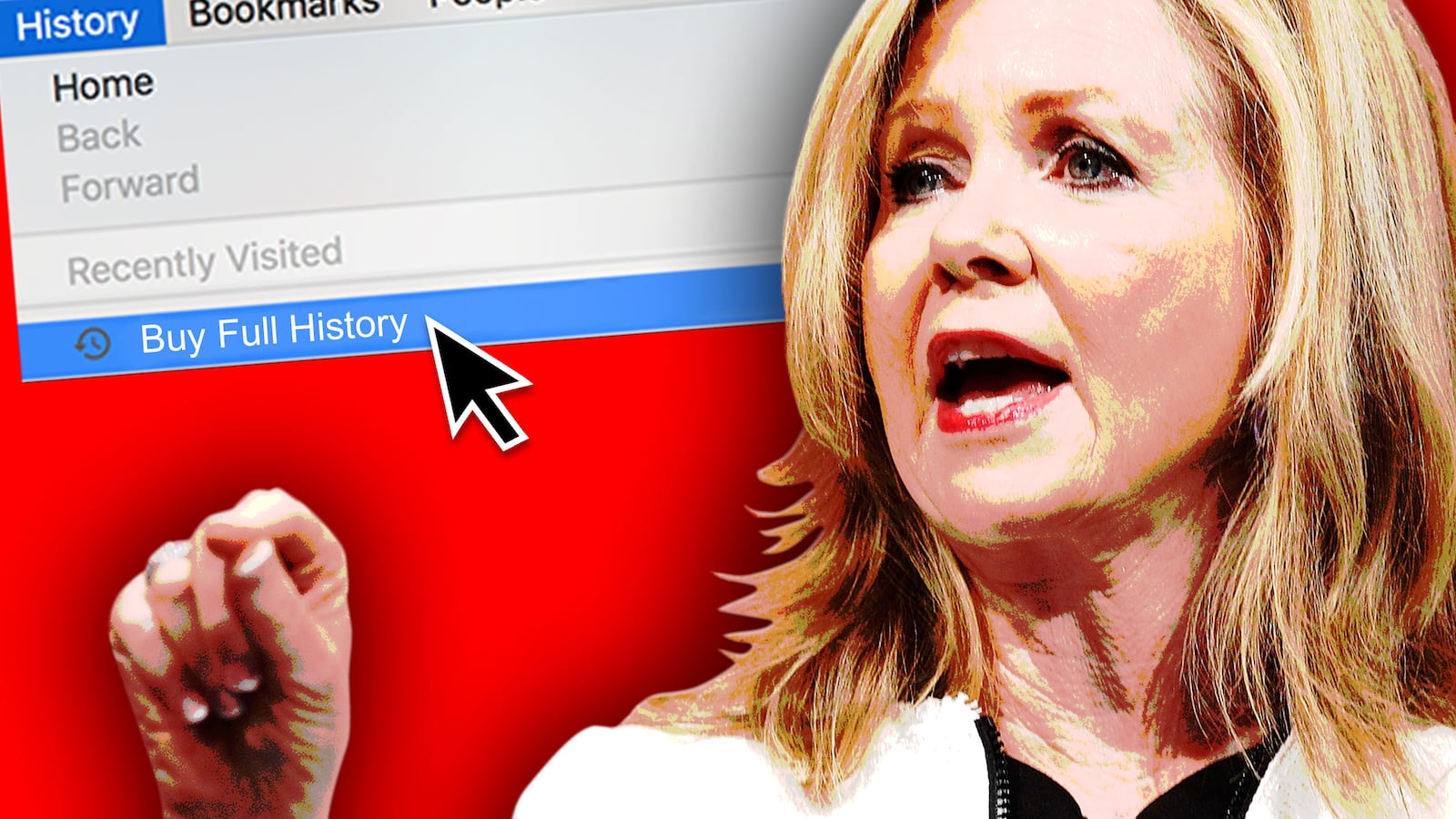House Telecom Subcommittee Chairman Marsha Blackburn received $84,000 from telecommunications companies in the 2016 election cycle alone.
On Tuesday, she and 264 other members of Congress, all Republicans, then voted to reverse a newly instituted FCC privacy rule that would allow internet service providers to sell previously private browsing data to the highest bidder.
Now one Tennessee mobile software engineer wants to prove just how disastrous the bill can be and highlight how data bought by ISPs can expose the private browsing histories—and lives—of any citizen.
Adam McElhaney wants to see Marsha Blackburn’s browsing history. And he’s trying to outbid ISPs to get it.
“She represents my state and I feel personally hurt she would sell us out for nearly $700,000,” said McElhaney, referring to Blackburn’s lifetime payout from the telecom industry.
Before the bill passed Tuesday, McElhaney created SearchInternetHistory.com, a website that aims to use the bill’s new power to crowdfund for the browsing histories of its biggest supporters. Currently, the website shows a poll for the first four possible targets: Blackburn, House Speaker Paul Ryan, Senate Majority Leader Mitch McConnell, and FCC Chairman Ajit Pai.
“I think everyone is targeting Marsha Blackburn and Paul Ryan right now on the site,” McElhaney told The Daily Beast.
McElhaney insists this isn’t a joke. And it better not be: Search Internet History’s GoFundMe page had surpassed $100,000 at press time.
“This grew much quicker than I had ever imagined, and we’re growing something bigger than I had ever hoped,” he said.
Pulling off the fund’s stated goal will be tricky, but likely not impossible—and that’s the scary part. Other privacy bills disallow the sale of individual account data. Individual users, however, could be reverse-engineered from data that is sold in a large set.
Once the law is signed by President Trump, geolocation data along with browsing history data will again be on the market for ISPs. That means a company with dedication and resources could likely, with a reasonable degree of certainty, pinpoint Blackburn, Pai, Ryan, or anyone they seek to take down based on their browsing data and IP address alone.
A company or super PAC with good intentions could use it to target you with better advertising. A company or super PAC with bad intentions could use it to target you with something much worse.
A guy with thousands of dollars and a team willing to home in on the identity of one politician could do that, too.
“I’ve been approached by a lot of people who are in support of this cause. Others who have offered their services: technical, legal, financial,” McElhaney said. “There are some smart people out there who want our cause to succeed. I plan on utilizing everyone I can.”
To McElhaney, it’s not about comic-book-villain-style blackmail. The bill could allow companies to quietly blacklist people from jobs and services—and they might never know about it.
“Do you think your insurance company would be interested to see if you’re looking up symptoms to a disease you might have?” he said. “Would your boss be interested in seeing if you’re looking up other jobs? Or [when looking for a new job] to submit your search history to them?”A statement by the House Energy and Commerce Committee that was tweeted by Blackburn called the previous protections “the FCC’s power grab… in which the FCC applies its own set of rules for ISPs.”“These rules are nothing more than a big government power grab that will hurt hardworking taxpayers, and I’m thankful the House took an important step today in protecting consumers and the future of internet innovations,” Blackburn wrote.
But McElhaney echoed what many consumer and open internet advocacy groups said about the bill: The only side benefiting from this bill is the telecommunications companies.
“I can see no consumer benefit. It will be the consumer who will feel the repercussions of their private data being bought and sold,” he said.
He’s seeking to prove it first, in the highest profile manner available—by exposing a politician who wanted the bill to pass the most.





